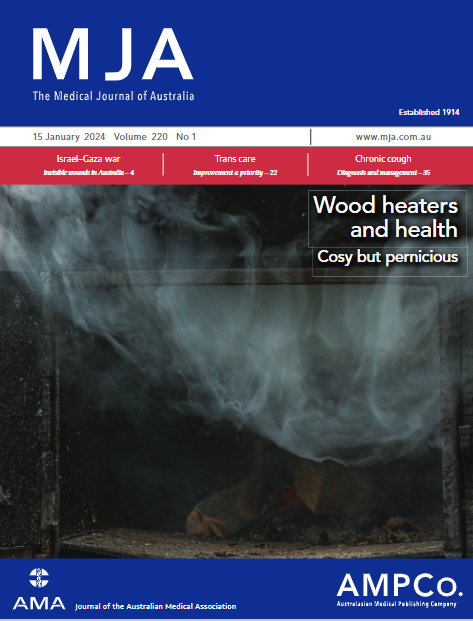To compare rates of participation in the National Bowel Cancer Screening Program (NBCSP) and follow-up for people with severe mental illness with those for people without severe mental illness or not prescribed antidepressants.
Retrospective cohort study; analysis of de-identified linked NBCSP, Pharmaceutical Benefits Scheme (PBS), and Medicare Benefits Schedule (MBS) data.
Australia, 2006–2019.
People aged 50–74 years (NBCSP-eligible) with severe mental illness, defined as those dispensed two or more prescriptions for second generation antipsychotics or for lithium (PBS data), and a random sample of people aged 50–74 years eligible for Medicare-subsidised services but never prescribed psychotropic medications (antipsychotics, lithium, antidepressants).
NBCSP participation (returned faecal occult blood test sample), valid test result, positive test result, and follow-up colonoscopy rates.
A total of 119 475 people with severe mental illness and 1 090 574 control group people were included in our analyses. The proportion of women was larger in the severe mental illness group (51.3%) than the control group (48.7%), as were the proportions who lived in inner regional areas (23.5% v 19.1%) or in areas in the lowest socio-economic quintile (21.8% v 14.7%). The NBCSP participation rate was lower among people with severe mental illness (adjusted incidence rate ratio [IRR], 0.70; 95% confidence interval [CI], 0.69–0.84). The proportion of valid test results was smaller for people with severe mental illness (95.9% v 98.7%; adjusted IRR, 0.97; 95% CI, 0.96–0.99), and the positive test result proportion larger (12.3% v 6.6%; adjusted IRR, 2.01; 95% CI, 1.94–2.09). The proportion of positive test results followed by colonoscopy was smaller for people with severe mental illness (71.7% v 82.6%; adjusted IRR, 0.88; 95% CI, 0.85–0.92).
People with severe mental illness were less likely to participate in the NBCSP or to undergo colonoscopy after a positive test result than other Australians. These differences may contribute to higher colorectal cancer mortality among people with severe mental illness. The contributions of differences in cancer stage at diagnosis and subsequent treatment to higher colorectal cancer mortality require further study.



